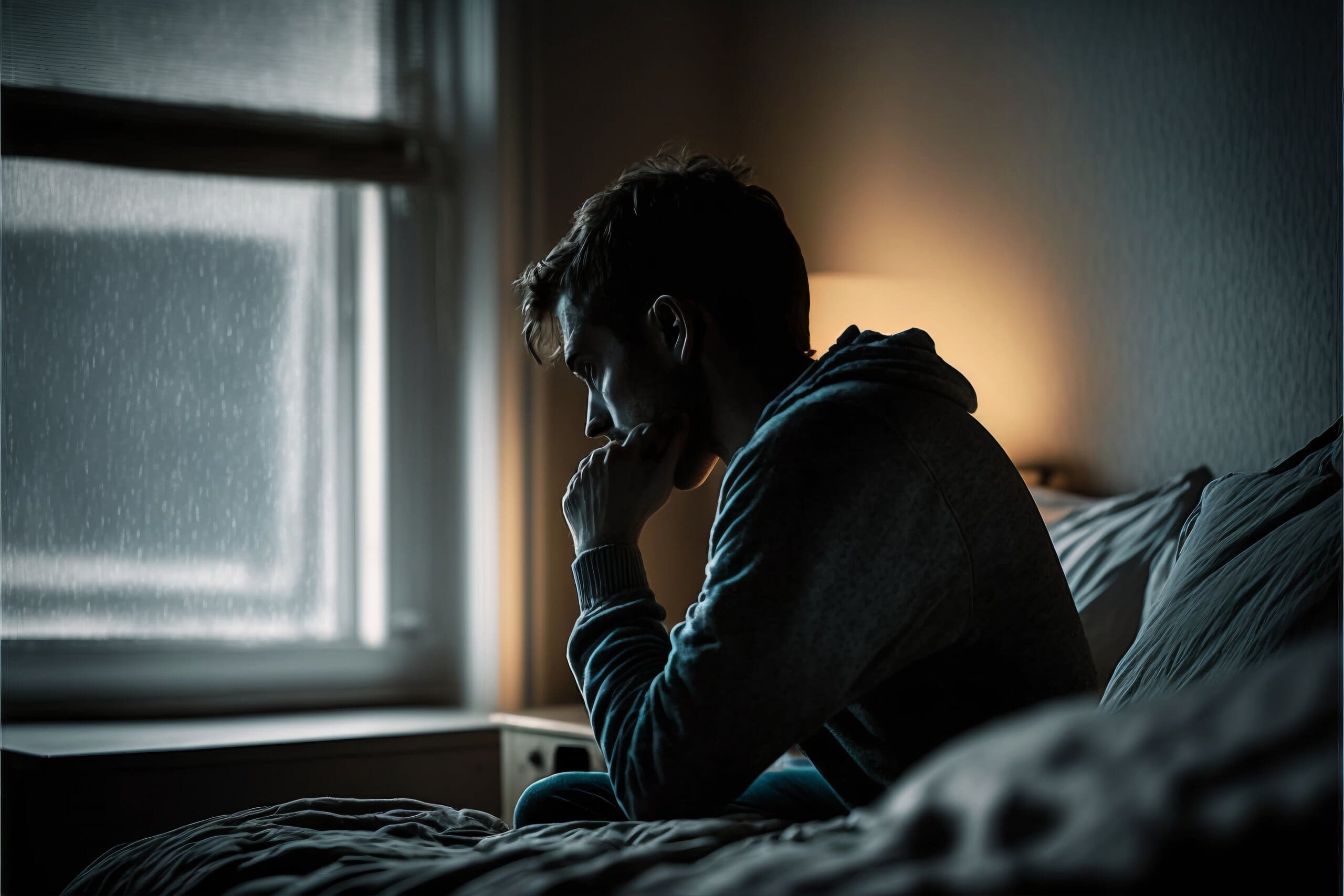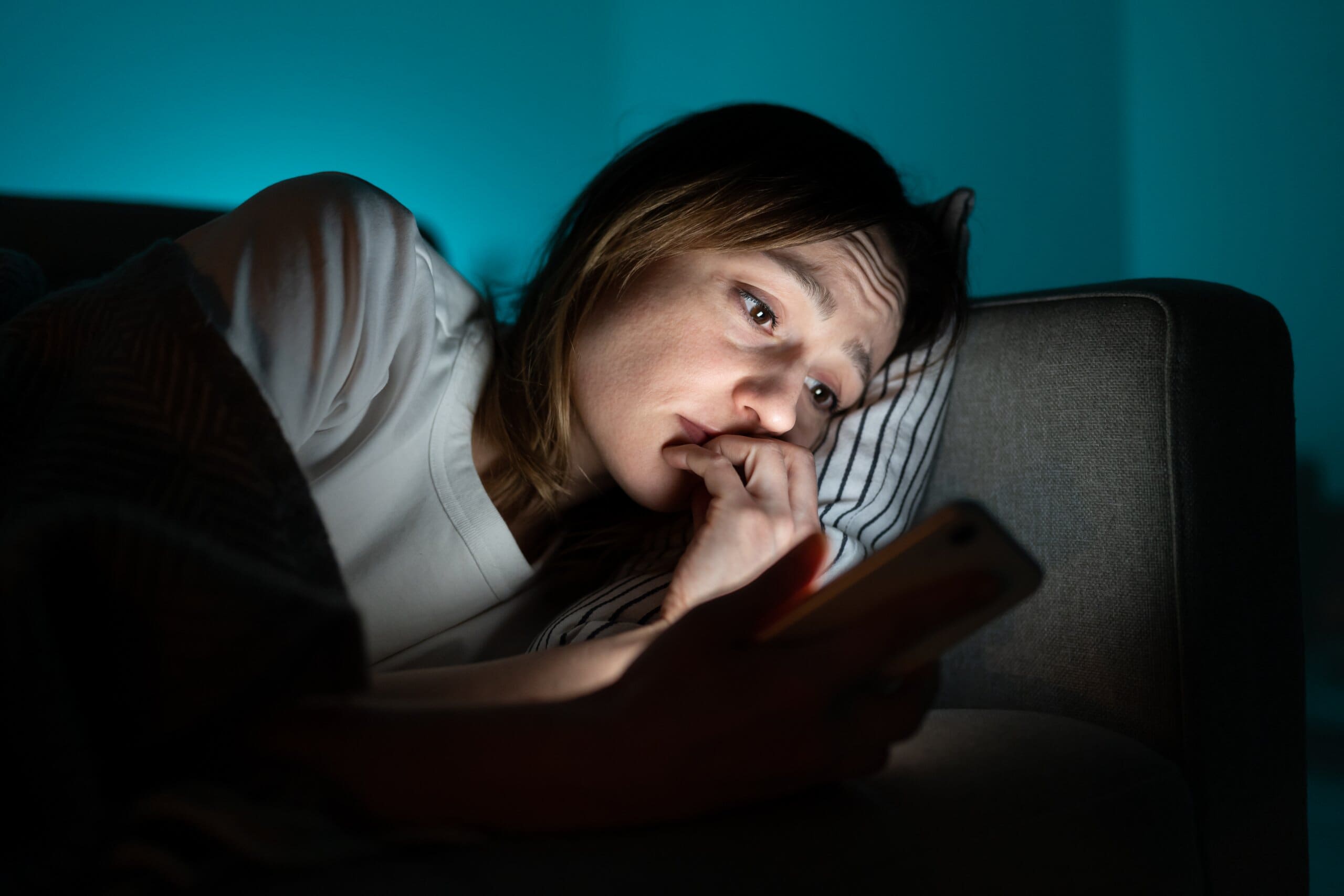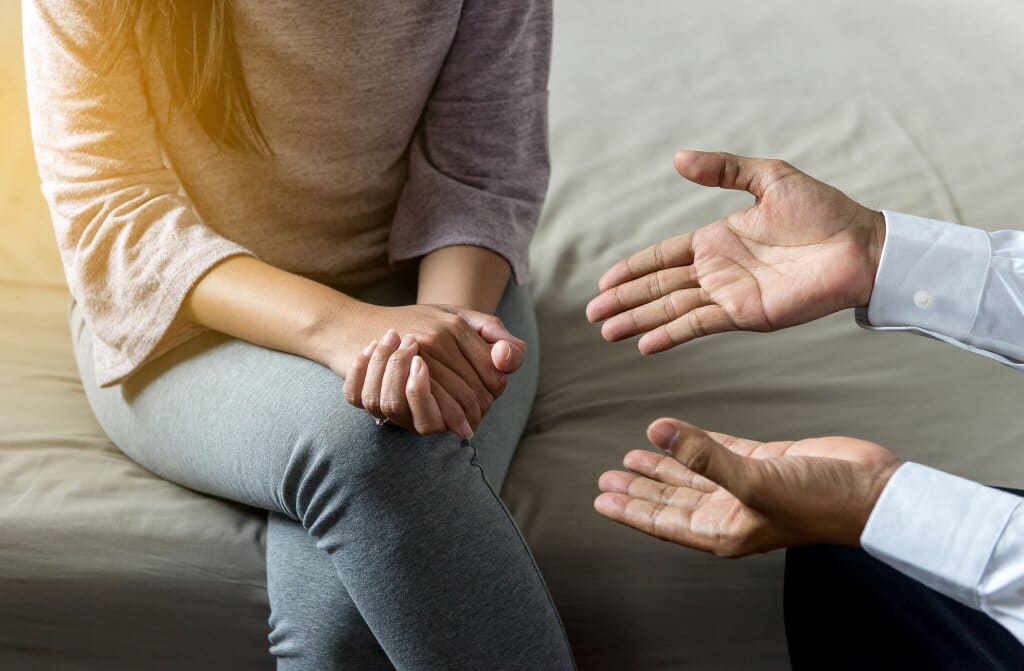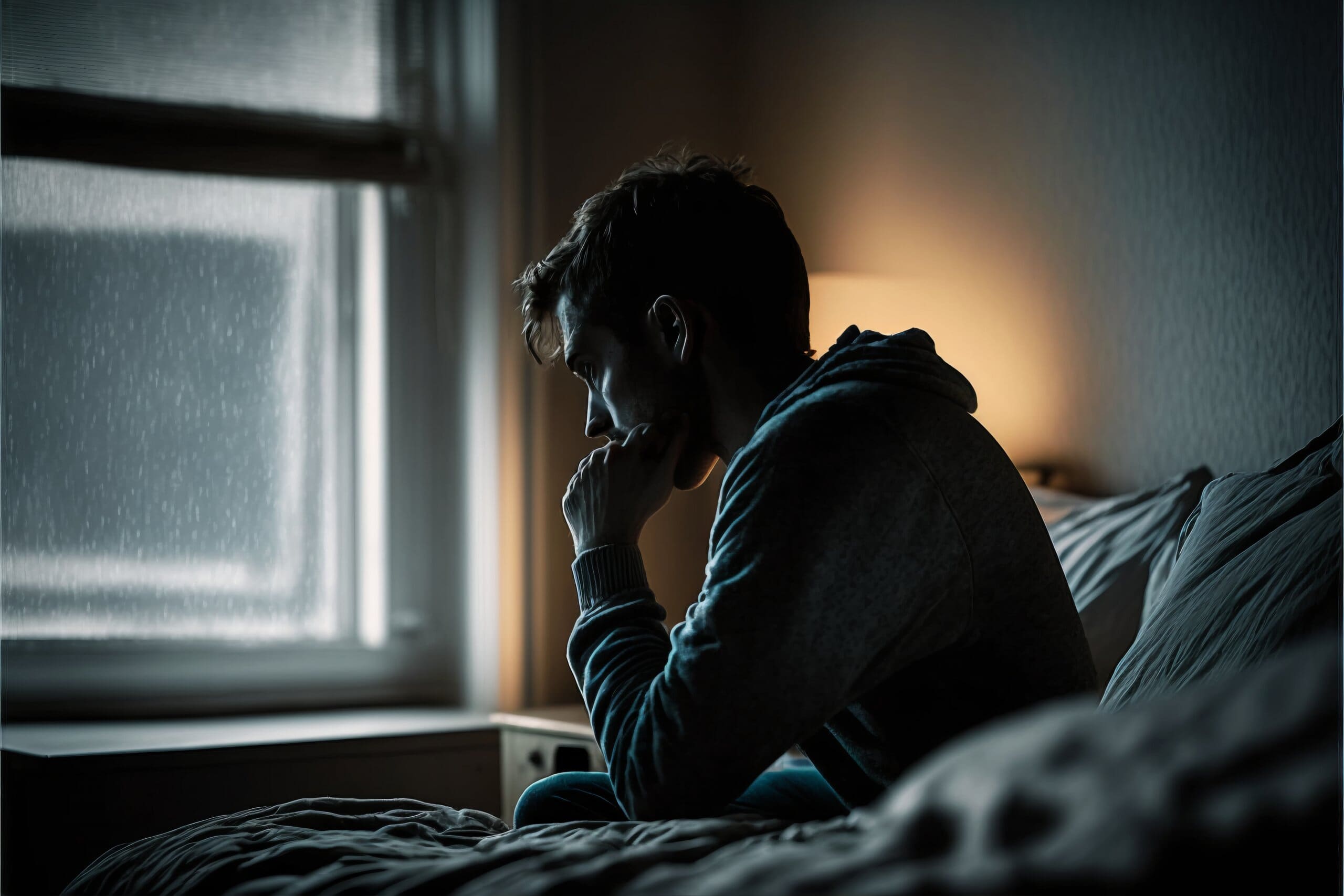The relationship between mental health and sleep is not only close, but moves in a cycle - if you’re suffering from mental health problems, you’ll likely experience poor sleep, and if you have poor sleep, your mental health will suffer.
Mental health charity 'Mind' has also confirmed this: “Poor sleep leads to worrying. Worrying leads to poor sleep. Worrying about sleep is like your mind trying to fight itself. That's a horrible place to be.”

How does having a mental health problem impact your sleep?
Everyone with a mental health problem is different. Although some symptoms of mental health are common, for example sleeping a lot if you suffer from depression, mental health can look different for everyone.
If you have a mental health problem, such as anxiety or depression, you might experience these issues with sleep:
- Difficulty getting to sleep, difficulty staying asleep, waking up early
- Intense nightmares or panic attacks during the night
- Difficulty waking up and getting out of bed
- Feeling tired all the time
- Sleeping a lot - even when you’re supposed to be awake
If you’re suffering from depression, you might sleep a lot as an ‘escape’ from reality. Anxious thoughts, however, can keep you from falling asleep, as your mind races.
'Mind' explains how different mental health problems can have different effects on your sleep:
- Anxiety can cause rapid and repetitive thoughts as you try to get to sleep, as well as panic attacks
- Depression and Seasonal Affective Disorder (SAD) can cause you to sleep more - although some people with depression find they suffer from insomnia
- Trauma and PTSD can cause flashbacks and night terrors - you might feel unsafe and uncomfortable
- Paranoia and psychosis can cause you to see or hear things that disturb your sleep
- Mania can make you feel energetic, so you won’t want to sleep or feel tired
How does poor sleep affect your mental health?
Poor sleep can make your mental health problems worse, for example:
- You’re more likely to feel depressed and have suicidal thoughts
- You’re more likely to experience a psychotic episode
- A lack of energy can leave you feeling lonely and isolated
- You won’t be able to concentrate on school or work or make plans with friends
- You’ll feel irritable and snappy
- You won’t be able to make decisions - this can make it difficult to rationalise anxious thoughts
Can poor sleep cause mental health problems?
We’ve all experienced feeling groggy and grumpy if we haven’t had enough sleep, but lack of sleep might also be a factor in causing more serious mental health problems.
Insufficient sleep can increase negative emotional responses to stressors, and decrease positive emotions.
More research needs to be done, but Columbia University researchers note that sleep is important for a number of brain and body functions that help process events and regulate emotions and behaviours.
Sleep helps to maintain our cognitive skills, such as attention, learning and memory. Poor sleep, or lack of sleep, can make it difficult for you to cope with even minor stressors, and impacts your ability to perceive the world accurately.
One study even found that those with insomnia are four times more likely to develop depression.
Battling nighttime anxiety
Lots of people suffer from anxiety, especially at bedtime. The anxiety you face during the day feels overwhelming, as there are fewer distractions from your racing thoughts.
Sleep anxiety can differ from person to person, but some of the most common symptoms are:
- Difficulty falling and staying asleep
- Difficulty concentrating
- Restlessness and nervousness
- Gastrointestinal problems
- Nightmares, night terrors and panic attacks
- Hypnic jerks or ‘twitching’
If you think you suffer from sleep anxiety and want to learn more, you can read our guide on What Is Sleep Anxiety, And How To Manage It.

How to treat severe sleep problems
If your mental health is causing you to lose huge amounts of sleep, or if sleep deprivation is having a negative impact on your mental health (remember it’s all connected!) then speak to your doctor. There are a number of treatments they can recommend.
Cognitive behavioural therapy for insomnia
CBT or CBT-I is a talking therapy that helps you understand the causes of your mental health problems and gives you strategies to help.
CBT is one of the most common and effective forms of mental health treatment. While CBT-I can take longer to have an effect than sleeping pills, the results are longer lasting, with research finding that up to 70% of insomnia sufferers find the tactic effective.
Sleeping pills and minor tranquillisers
Your doctor might prescribe you sleeping pills to help you get to sleep more easily. These are generally a short-term solution, as you can become addicted and they sometimes cause nasty side effects such as drowsiness and nausea.
Sleeping pills and minor tranquillisers such as benzodiazepine could be prescribed if your doctor thinks they’re right for you. They have a sedative effect that slows your brain and body’s functions, preventing you from spiralling with anxious thoughts.
Ask to be referred to a Sleep Clinic
An NHS outpatient service, a sleep clinic will assess you if you’ve been referred by a GP. They can help you find the cause of your insomnia and find the right treatment for you.
Sleep clinics can also help you deal with nightmares, sleep paralysis, restless legs syndrome, and circadian rhythm disorders.
You’ll be asked to fill out a questionnaire about your sleep habits and a doctor or therapist will thoroughly assess your mental health and how this impacts your sleep. The sleep clinic can then arrange further testing to get to the bottom of your insomnia.

Discovering the causes of your insomnia is key to finding a solution. If you suffer from mental health problems, you might find that your sleep is seriously affected. Poor sleeping habits, however, can cause mental health problems, so be sure to speak to your doctor if you think your mental health is suffering as a result of poor sleep.
If you don't think you need to speak to a doctor, but still want help getting to sleep, our blog, Snooze News, is full of helpful tips and tricks. Our article on how to practise self-care in your nighttime routine can inform you on how important it is to look after yourself, for you brain and body.





